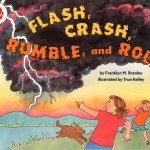
Readers & Thinkers: The 2021 Nobel Prize in Economics. E’ Solo Un Trucco
Posted by ludw1086 on Oct 11, 2021 in Readers & Thinkers | Comments Off on Readers & Thinkers: The 2021 Nobel Prize in Economics. E’ Solo Un TruccoDear All:
Well, who won?
The Nobel Prize for Economic Sciences for 2021 was announced today, October 11, 2021. It went to David Card, Josh Angrist, and Guido Imbens.
Card is 65 years old and was born in Guelph, Canada. He obtained his B.A. from the Queens University and his Ph.D. from Princeton University. His Nobel-winning work was done while at Princeton University. He is currently a Professor of Economics at UC Berkeley.
Angrist is 61 years old and was born in Columbus, Ohio. He obtained his B.A. in economics from Oberlin College and his Ph.D. in economics from Princeton University. His Nobel-winning work was done while a professor at MIT. He is currently the Ford Professor of Economics at MIT.
Imbens is 58 years old and was born in Geldrop, Netherlands. He obtained his undergraduate degree from Eramus University and his Ph.D. from Brown University. His Nobel-winning work was done while a professor at Harvard University. He is currently an Applied Econometrics Professor at Stanford University.
The prize was given for applied econometrics and labor economics, which were two of the fields I thought might be due for an award.
So what did these guys do to make them so Noble?
The Nobel committee wrote that Card received the prize “for his empirical contributions to labour economics” and Angrist and Imbens received the prize for “for their methodological contributions to the analysis of causal relationships”.
Whether it’s medicine, physics, economics, or some other field, one of the goals of good research is to understand what works and what doesn’t work. Ultimately, good economists, just like good doctors, want to help people find recipes to live life better. To help them with this, economists and doctors use two primary mechanisms. The first mechanism is theory and the second mechanism is measuring outcomes on real people. This Nobel prize is primarily about the second mechanism. In particular, the winners used clever logical design and statistics to measure more accurately the cause and effect of ideas.
In the movie, La Grande Bellezza (The Grand Beauty), the main character says “E’ solo un trucco.” That is, “It’s only a trick.” What Card and Angrist did is to use standard statistics along with a “trick” to help figure out causality.
In the medical field, researchers can often times create randomized control trials to learn whether a drug works or not. For example, if we have a new coronavirus drug that is believed to cure people of corona, we can randomly select 1000 people that have early-stage coronavirus and give 500 of them the drug and 500 of them a placebo (looks like the drug, but it’s fake). We then observe the different outcomes and attempt to determine whether the drug works or not. Because of the random selection of people to groups, the causality or lack of causality is more apparent.
In economics, it’s very impractical and sometimes unethical to do this. Thus, economists observe lots of data and attempt to attach significance to the data. The problem is that so many other factors can influence the data and make inferring causality extremely difficult. For example, suppose a researcher is interested in whether military service reduces lifetime earnings. One cannot just take the incomes of ex-military and compare it to those that did not serve in the military, because there may be characteristics of both groups that lead to their choices and also lead to different incomes. Josh Angrist studied the history of the military and came up with a “trick” or a natural experiment. In the 1970s, the American government ran lotteries to draft people into the Vietnam war. Thus, the people “winning” these lotteries were essentially random. Thus, Angrist had figured out a trick that allowed causality to be more easily determined. He found that drafted Vietnam vets earned about 15% less than those who had avoided the army.
Card used a similar trick to determine whether the minimum wage causes unemployment or not. Basic economics tells us that if you increase the price of a good, demand for the good will be less. Thus, in theory, if government forces firms to raise the minimum wage, employers will react by reducing employment. Most empirical studies also showed that this was the case. The problem with understanding cause and effect is that it is not clear whether other factors that led to increases in minimum wage also were related to unemployment. Card and Krueger found a trick in New Jersey restaurants. The trick was that the New Jersey government had increased the minimum wage, while the neighboring Eastern Pennsylvania government did not. This created a type of natural experiment in that the areas were similar in terms of other economic characteristics, but had a different treatment to minimum wage law. They found that employment increased in New Jersey and declined in Pennsylvania, but overall found that the minimum wage did not affect employment. There has been criticism and disagreement with this and related studies.
Imbens helped Angrist with a theoretical paper to determine under what conditions the tricks would work, and under which conditions, the tricks would not work. This helped provide a guiding principle for this type of research.
Since the early 1990s, the field of natural experiments or finding tricks in the data has exploded, both in a good way and a bad way.
So what about the Nobel choice?
First, the idea to find a trick so that empirical analysis is more powerful has existed for a long time. Perhaps one of the earliest mentions of this approach was by American psychologist, Donald Campbell. These sorts of tricks are a great help for social scientists and Angrist and Card both found their own tricks to do their applied analysis.
Second, this search for tricks has been criticized by some very well known academics, including Heckman and Deaton. In the 1990s, when this “trick” approach became popular, many young, intelligent graduate students looked for a trick at all costs. This led to perhaps a misallocation of resources and also to some seriously flawed work, including one piece of work that claimed that hepatitis was the reason for the low female birth rate in China, when common sense told you it was clearly something else. Thus, clever tricks are a great tool in economics (as well as other disciplines), but in moderation.
Third, Angrist’s Ph.D. thesis on the military and earnings launched his career and got him his first job at MIT.
Fourth, although I don’t know David Card personally, when I was doing some very complex work on crowding, he generously gave me access to the Econometrics laboratory at UC Berkeley to run parallel processes on the supercomputer.
Fifth, what about Alan Krueger who wrote some of the papers with David Card? Unfortunately, Alan committed suicide a few years ago.
So is that it?
I asked Jim Heckman, one of the great intellectuals in economics and a Nobel prize winner himself, what he thought about today’s Nobel prize. He replied, “It’s a prize for statistics this year, not economics.”
Although there is a disagreement whether the “tricks” are always useful or not, thinking of tricks is very important for disciplines like economics. Researchers who come up with tricks should also make sure that there is theory underlying the concept they are studying. In other words, they should read and understand some of the criticisms from people like Heckman and Deaton. Researchers should also be aware of the limitations of natural experiments and even inferring ideas from small samples to large populations.
We also must remember that what research should be doing is finding recipes for people to live better lives. Might there be tricks to find in cancer research that will help us understand how to prevent or cure it better? Are there tricks to helping us understand the effects of the wireless world on our physiology as well as our psychology?
And finally, it should always be remembered that even though these three people won the prize, there are many others researchers who have been using tricks to help us understand our world better. All of them are important for making the world better.
For more information on the winners:
https://www.nobelprize.org/prizes/economic-sciences/2021/press-release/
From MIT: https://news.mit.edu/2021/mit-economist-joshua-angrist-shares-nobel-prize-1011
From UC Berkeley: https://news.berkeley.edu/2021/10/11/uc-berkeleys-david-card-wins-2021-nobel-prize-in-economics/
From Stanford: https://news.stanford.edu/2021/10/11/guido-imbens-wins-nobel-economic-sciences/
Congratulations to Card, Angrist, and Imbens for their pursuit of knowledge, and the other armies of researchers who walked with them!
Happy Columbus Day!
Ludwig
P.S. Feel free to email me your thoughts and indicate whether you wish them to remain anonymous or not.
P.P.S. Don’t forget to watch the Silk Nobel Lecture series and sign up for future notifications. Silk Lecture Videos & www.usfnobel.com
October 11, 2021






